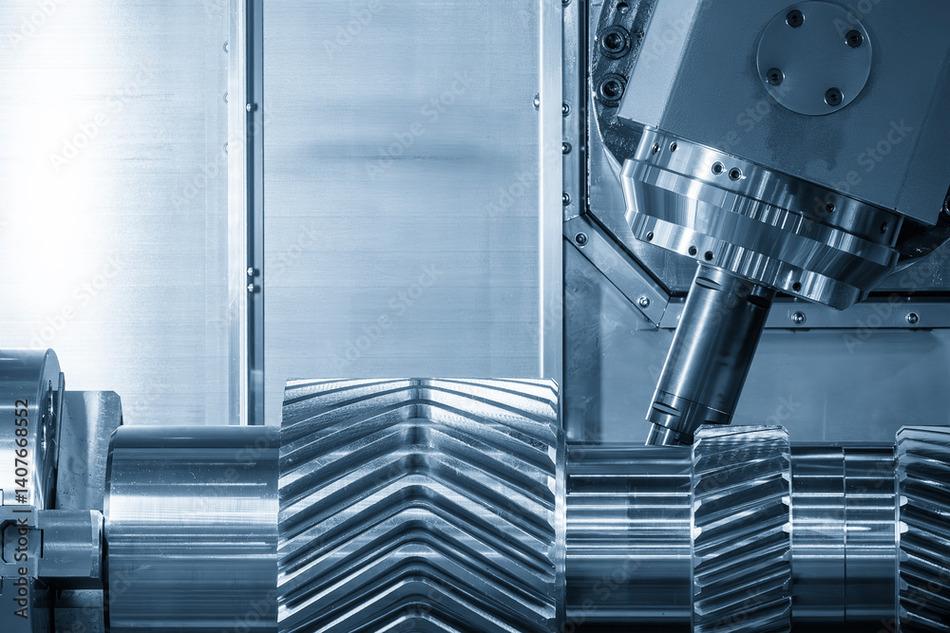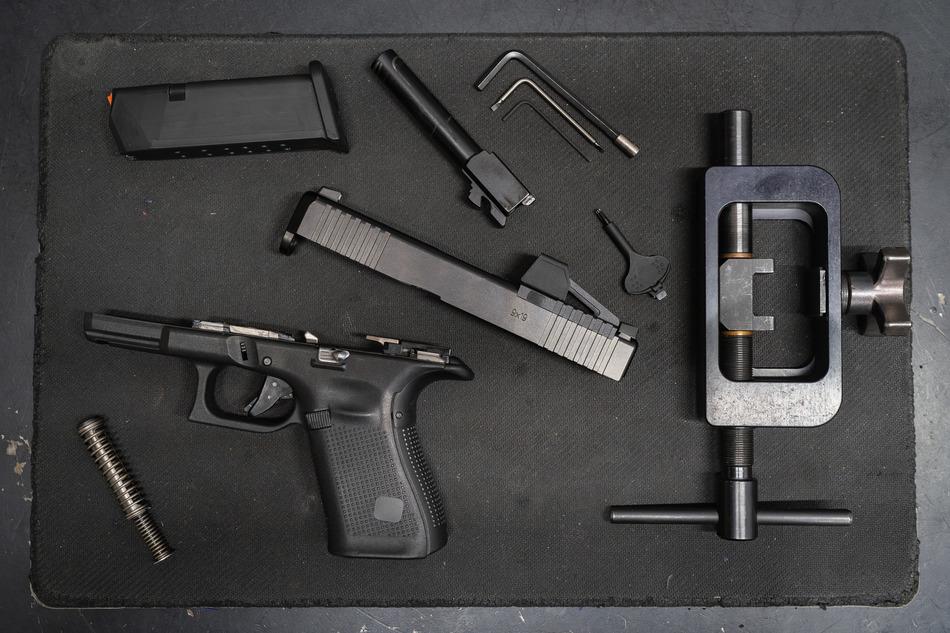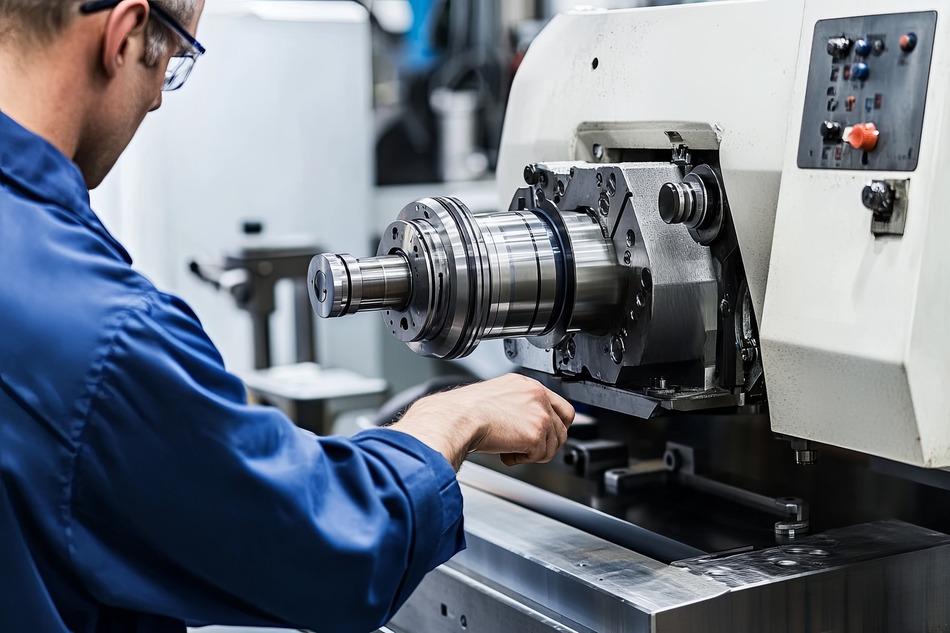What Is CNC Machining and How Does It Benefit Manufacturing?
CNC machining has become an essential part of modern manufacturing. It makes creating parts for everything from cars to electronics faster, more accurate, and more efficient. But just what is CNC machining, and why is it so important for the manufacturing industry? This blog will break down how machining works, the different types of CNC machines, and the many benefits it brings to production.
What Is CNC Machining?
CNC stands for Computer Numerical Control. This technology allows machines to operate with very little manual control. Instead, computer software guides machining tools to make precise cuts, shapes, and designs. Even the most complex machinery can work accurately and produce highly detailed parts.
In the early days, operators used punch cards to program machines, but today’s technology is more advanced. CNC programming now takes place on a computer, often using Computer-Aided Design (CAD) software, which creates the part’s design and directs the machine.
How CNC Machining Works
CNC machines follow instructions from computer software to shape materials into desired parts. The process begins with a CAD design, which the system converts into a series of commands. The software then controls the machining tools, telling them where to move and how fast. This automation makes the manufacturing process more accurate and efficient than traditional methods.
Here’s a simple breakdown of how a CNC machine works:
- Design Phase: Engineers use CAD to create a digital model of the part they want to make.
- Programming Phase: The system converts the CAD file into CNC programming code, which directs the machine’s actions.
- Machining Phase: The machine follows the programming to shape the material, whether it’s metal, plastic, or wood.
Types of CNC Machines
There are several types of CNC machines, each designed to do different jobs in the manufacturing process. Here are the main types:
- Mill Machine: This type of machine uses rotating cutting tools to shape materials. Manufacturers often use it to create complex shapes and patterns.
- Turning Machines: Turning machines, also called lathes, spin the material while a cutting tool shapes it. These machines are ideal for creating rounded or cylindrical parts.
- Electric Discharge Machines (EDM): EDM machines use electrical sparks to cut through materials. They’re perfect for very hard metals and precise shapes.
Each type of machine has specific uses, and most machines include high-tech features to ensure precision and speed. These machines have become vital in manufacturing because they can produce complex designs quickly and with minimal errors.
CNC Machining and Industry 4.0
In the context of Industry 4.0, CNC machines don’t just operate independently; they become part of a larger network of complex machinery that communicates across the entire production line. This connectivity allows manufacturers to monitor each machine’s real-time status, receive alerts if issues arise, and access valuable data on machine performance.
By analyzing this data, companies can optimize programming for faster, more efficient production cycles, predict when maintenance is needed, and avoid costly downtime. This integration not only improves output but also makes manufacturing processes smarter, more responsive, and better aligned with modern production demands.
Benefits in Manufacturing
CNC machining has brought significant improvements to the manufacturing industry, especially for businesses needing reliable, fast, and efficient methods to make machine parts. Here are the main advantages:
Precision and Consistency
CNC machines are known for their ability to create identical parts over and over with incredible accuracy. This precision is especially important for products like car engine components or medical devices, where even a small mistake could cause big problems. The computer software that powers CNC machines reduces errors by guiding each cut, shape, and movement, ensuring every part meets exact specifications. Because machining can achieve the same high standards on every piece, it helps companies avoid wasted materials and maintain consistent quality in every product.
Speed and Efficiency
Designers build CNC machines to run automatically and operate around the clock, greatly speeding up production. Since CNC machines don’t need to pause, they’re perfect for companies with high production demands. Additionally, CNC programming makes it easy to set up and switch between different jobs quickly. Once a design is ready, the machine starts working right away, making it possible to produce parts continuously. This level of efficiency helps businesses save time and meet tight deadlines without sacrificing quality.
Reduced Labor Costs
One of the cost-saving benefits of machining is that it requires minimal manual control. Since CNC machines operate mostly on their own, a single operator can monitor several machines at once, reducing the need for a large workforce. Operators also don’t need extensive training or specialized machining skills because their primary task is to oversee machine operation, not perform hands-on work. As a result, businesses can cut down on both staffing and training costs, which helps lower overall production expenses.
Safety
CNC creates a safer working environment by reducing the need for workers to be close to cutting tools and other potentially dangerous parts. Instead of standing near the machine, operators can watch from a safe distance, reducing the risk of accidents. Many CNC machines come with safety features like automatic shutdowns that stop the machine if something goes wrong. By minimizing direct contact with the equipment, machining helps protect workers and creates a safer workplace overall.
Flexibility and Versatility
CNC machines are incredibly flexible and can handle a wide range of materials and designs. By simply updating the CNC programming, companies can quickly switch from making one part to another without having to buy new equipment. This flexibility allows businesses to use the same machine for various products, saving both time and money. CNC machines’ ability to work with different materials and designs makes them suitable for diverse projects, from metal and plastic parts to more complex shapes and patterns.
Need Help Finding Your CNC Machine?
CNC machining is a game-changer in manufacturing. With the help of CNC programming, CNC machines can make parts faster, more accurately, and more consistently than ever. They are essential tools in the manufacturing industry, allowing businesses to produce high-quality products with less waste and lower costs.
Interested in taking your CNC machining projects to the next level? Contact In-House CNC at (951) 540-4820 or sales@in-housecnc.comto learn more about how our services can enhance your production process. Our team specializes in precision CNC solutions, helping you achieve accuracy and consistency in every part. Reach out today to discover how we can support your CNC needs and help you produce high-quality results every time.




